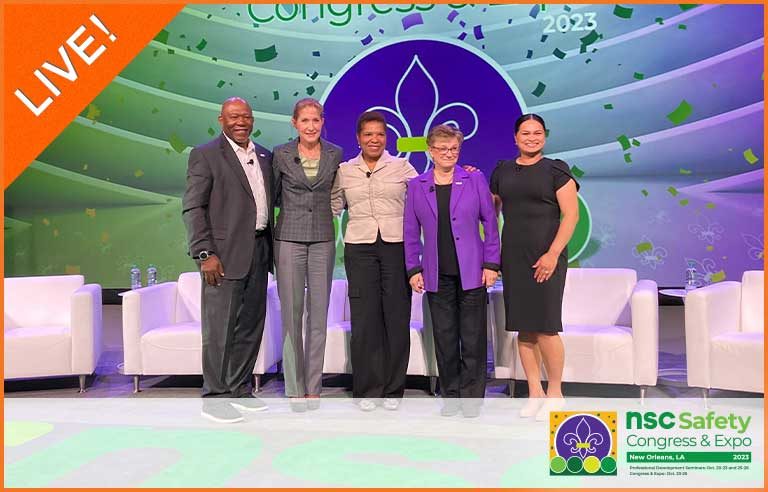DEI and safety: Panelists encourage employers to ensure all workers have a voice

New Orleans — By empowering others, you can make people safer.
That was U.S. Air Force Maj. Gen. Jeannie M. Leavitt’s final message during her speech Tuesday before a panel discussion on diversity, equity and inclusion at the 2023 NSC Safety Congress & Expo.
Inclusion, Leavitt said, can help workers feel that their thoughts and opinions matter. That confidence can then empower them to speak up when they identify safety issues.
“Your organization needs people who feel empowered,” Leavitt said. “You don’t know who’s going to see that hazard or that dangerous situation. You want them to feel empowered to bring that forward, to speak up.”
She added that the next great safety innovation could come from anyone. That’s why it’s best to have a variety of perspectives in the workforce.
Safety leaders can also seek to tackle structural issues. While recounting her journey as the Air Force’s first female fighter pilot, Leavitt said having the right equipment was an early challenge: “Being the first [woman] to go into fighter aviation, I will tell you there were a lot of things that didn’t fit quite right.”
Among her examples was the minimum weight for ejection seats. One of her fellow pilots would have to weigh herself before flying, and if she was underweight, she couldn’t fly that day.
“We need to make the equipment to fit the humans, not force the humans to fit the equipment,” Leavitt said.
Leavitt was joined on the panel by Nicole Piggott, co-founder of Synclusiv and chief operations officer at Women in Governance, and I. David Daniels, president and CEO of ID2 Solutions.
Piggott spoke about a similar challenge she had early in her career. While working in the mining industry, she saw a rise in injuries among female workers. These workers told Piggott that their gloves kept falling off, their shoes didn’t fit and that other personal protective equipment wasn’t fitting properly.
Piggott said: “The light bulb went off for me. We were pushing for diversity, equity and inclusion in the hiring space and HR. We hadn’t thought about how to make it possible for these women to be successful in these roles.”
She said she responded by telling the company’s suppliers that they need to make PPE that would fit women or they would lose the company’s business.
Cheyenne Lucero, safety coordinator at IBEW Local 302, also sat on the panel. “For my union, women make up about 1%. We need to take a step back before you bring in all these different people to make sure they feel safe.”
When it comes to those structural issues, Daniels said it’s important to have diverse perspectives among decision-makers so that decisions can be better informed ahead of time.
“We have to get people’s voices at the table when we’re thinking about safety,” Daniels said, “not after people are injured or after folks have been killed.”
Post a comment to this article
Safety+Health welcomes comments that promote respectful dialogue. Please stay on topic. Comments that contain personal attacks, profanity or abusive language – or those aggressively promoting products or services – will be removed. We reserve the right to determine which comments violate our comment policy. (Anonymous comments are welcome; merely skip the “name” field in the comment box. An email address is required but will not be included with your comment.)

